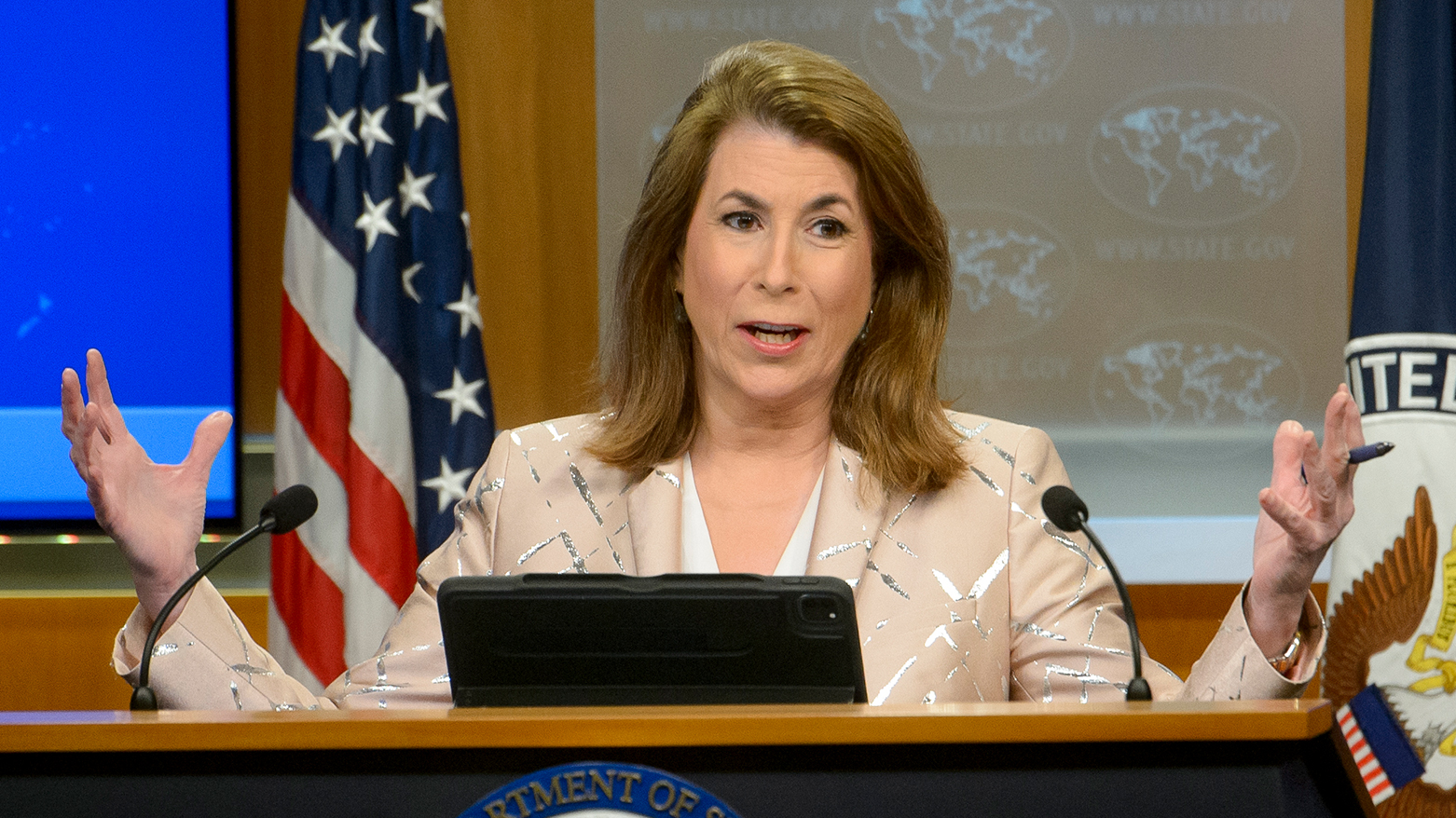U.S. Welcomes Iraqi Move toward Energy Independence
”The Government of Iraq is taking steps to secure alternate sources of electricity, including through expanding gas capture and increasing imports from neighboring countries.”

WASHINGTON DC, United States (Kurdistan24) - The U.S. has welcomed the efforts that Iraq has recently made to bolster its energy independence from Iran.Baghdad came under pressure from the Trump administration to do so. It had
long received sanctions waivers in order to import electricity and natural gas from its eastern neighbor.
One concern for U.S. officials had been that if such waivers were not granted, political unrest would follow, as the Iraq population suffered the consequences of an energy shortfall.
But that changed earlier this year. Speaking on Tuesday, in response to a question from Kurdistan24, State Department Spokesperson Tammy Bruce affirmed, “As part of the maximum pressure campaign” against Iran, in March, the waiver “for Iraq to import Iranian electricity was not renewed.”
Nonetheless, Iraq has continued to import Iranian electricity and has suffered no penalty. Bruce explained that was because Baghdad was moving in the right direction.
“The Government of Iraq is taking steps to secure alternate sources of electricity, including through expanding gas capture,” she said, rather than simply flaring the gas that is produced as a result of drilling for oil.
At the same time, Iraq is increasing its imports from neighboring countries, Bruce added.
Following the U.S. decision to end the sanctions waiver, Baghdad reached an agreement with Ankara to double its electricity imports from Turkey.
Iraq is also developing the infrastructure to import electricity from the Gulf Cooperation Council (GCC), the Saudi-led bloc of Arab Gulf states. Last month, Iraqi Minister of Electricity, Ziyad Ali Fadel, said that the electricity interconnection project with the GCC grid would be completed by the end of 2026.
Bruce also noted on Tuesday that U.S. firms were involved in the work to reduce, and ultimately end, Iraq’s dependence on energy imports from Iran.
“Some of these efforts are directly benefitting U.S. companies,” she said, “including the recent signing of memorandums of understanding with UGT Renewables and GE Vernova.”
“And of course, we continue to support,” she concluded, “all of the Iraqis’ efforts to end their energy reliance on Iran.”
Fuad Hussein’s Visit to Washington
Bruce’s comments follow the visit by Fuad Hussein, Iraq’s Deputy Prime Minister and Foreign Minister, to Washington two weeks ago.
A Kurd, Hussein was the long-time Chief of Staff to Masoud Barzani, before becoming Iraq’s Foreign Minister in 2020.
Read More: Iraqi Deputy PM and FM Fuad Hussein in Washington Today
Hussein’s meetings in Washington appeared to go well, and he described them as “successful and exceptional.”
Hussein explained that they involved efforts to revive the U.S.-Iraq strategic dialogue, as well as discussion of the Arab summit that Iraq will host in mid-May.
Read More: Iraqi FM: We Are Committed to Bridging Differences and Resuming Kurdistan’s Oil Exports
Hussein’s talks in Washington also included U.S. efforts to prod Baghdad into completing the steps necessary to restart Kurdish oil exports, which have been suspended since March 2023. That has yet to happen, although a delegation from the Kurdistan Region’s Ministry of Natural Resources was in Baghdad on Tuesday in an effort to resolve the obstacles to restarting those oil exports.
Read More: Kurdistan Oil Delegation in Baghdad for Key Talks on Resuming Oil Exports
And to judge from the remarks that Bruce made at Tuesday’s press briefing, Hussein’s talks in Washington also included a review of the steps that Baghdad has taken—and is taking—to promote its energy independence from Iran.
